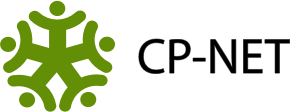"If I knew then what I know now": Parents' reflections on raising a child with cerebral palsy.
In Brief © Allison Reid and Doreen Bartlett, 2011
2
1000
births are diagnosed with Cerebral Palsy.
What is Cerebral Palsy?
Cerebral Palsy (CP) is a movement and posture disorder occurring due to damage in the brain before or during childbirth.1 It occurs in about 2 in 1000 births. 2 The presentation of CP can vary widely from person to person, making it more difficult for some persons with CP to participate in activities than others.
Why did we do this study?
Previous research has shown that caregivers of children with CP are generally unsatisfied with the level of information given to them by professionals about caring for a child with CP throughout their lifetime. 3 A common feeling expressed by caregivers in the Adolescent Study of Quality of Life, Mobility, and Exercise (ASQME) is that if they had had more information, they would have done things differently. 4 By talking with parents of children with CP and exploring this feeling further, the aim was to identify areas in which professionals can improve on their practice, as well as to collect information to help parents of newly-diagnosed children with CP.
What did we do?
- Parents of young adults with CP who had previously participated in the ASQME study were contacted and asked to participate in an interview exploring the theme of "if I knew then what I know now, I would have done things differently"
- Nine individual interviews were conducted by an experienced physiotherapist, and were tape recorded and transcribed anonymously for further analysis
- Each interview was reviewed and areas that expressed an overarching theme were identified
- The themes and selected quotes were documented in a journal article and used to help create a tip sheet to assist parents raising children with CP
What was found:
- Most parents talked about experiences surrounding attitudes, relationships, social factors, and support systems that affected them and their children, while very little focus was put on issues related to body structure and function
- Raising a child with CP affected the whole family - parents expressed a need for support and emphasized the need to take time to foster other relationships and to preserve their own well-being
- It was expressed that both the parent and the child with CP should educate themselves and act as advocates in all areas of life
- Support was found in extended family, community members, and professionals. It was appreciated when health care professionals stayed consistent throughout a child's life and built a close working relationship with the child, family, and others important to the family
- Parents found formal education for their children was optimized with positive outlooks, small class sizes, consistency in educators, and the fostering of inclusion and tolerance in the school system
- Participation in specialized community programs with other families raising children with CP was seen as positive for both the child and the parent. Integrated programs were seen as positive by some, while others expressed that their child had difficulty fitting in
- In general, parents expressed that more education is needed for the general public about children with CP
What does this mean?
- Parents of children with CP are a valuable source of information and advice for other parents of children with CP as well as service providers
- An individualized approach is necessary when caring for a child with CP which respects the parents' and child's wants and values. Both inclusive and specialized programs should be considered
- Although previous research has indicated a gap between what health care professionals provide and what families need 3,5,6 our findings reflect positively on them and show a family-centred approach to care
What's next?
More research on the experiences of adults with CP would give added insight about experiences from the child's point of view.
Acknowledgements
This project was funded by the Jack and Ina Pollock Charitable Foundation.
For further information, contact:
Doreen Bartlett, Associate Professor, School of Physical Therapy at The University of Western Ontario (djbartle@uwo.ca).
